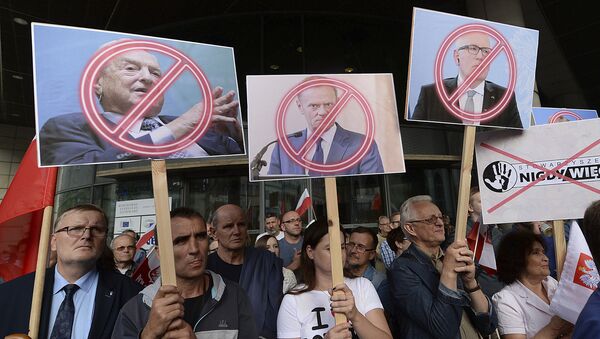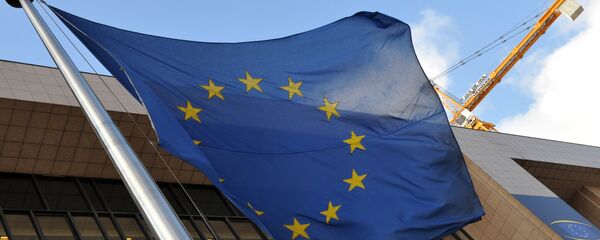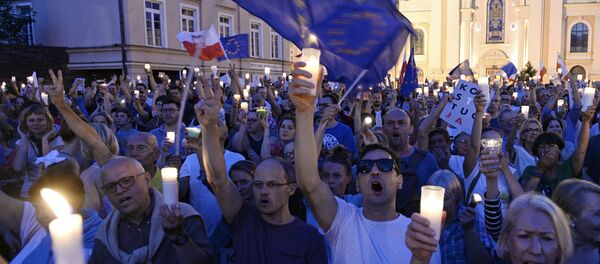The current rift between Brussels and Poland is a remarkable example of the European Union reaping the fruits of its reckless eastward expansion, according to Gevorg Mirzayan, associate professor at the Department of Political Sciences of the Finance University under the Russian Government.
Playing by Own Rules
"Newbies in the EU, especially Poland, do not want deeper integration within the bloc, which means the shrinking of their national sovereignty. Moreover, they have differences with Brussels on a range of issues, including the refugee crisis. Thus, there are two possible scenarios – accept the rules or leave. However, Poland found a third option – it does what it wants but keeps staying in the bloc to receive the benefits of the membership. Poland staged kind of a revolt against Brussels," Mirzayan wrote in an analytical piece for RIA Novosti.
The planned judicial reform became the final straw. Sponsored by the ruling Law and Justice party, the bill was adopted by the lower house of the Polish Parliament last week. It gives the parliament the power to fire the current Supreme Court judges and replace them with judges it nominates.
Brussels vs. Warsaw
EU leaders have criticized the bill for impairing judicial independence and threatening the rule of law.
On Wednesday, EC President Jean-Claude Juncker said that Poland’s voting rights in the EU could be suspended if Warsaw goes ahead with the controversial bill.
"If the Polish government goes ahead with undermining the independence of the judiciary and the rule of law in Poland, we will have no other choice than to trigger Article 7," Juncker said in a press release.
The EC recommends against the dismissal or forced retirement of Polish Supreme Court judges as a step that would "seriously aggravate the systemic threat to the rule of law."
Brussels recommended Poland "address the problems within one month, and to inform the commission of the steps taken to that effect."
Article 2 states that the EU is based on "the values of respect for human dignity, freedom, democracy, equality, the rule of law and respect for human rights." These are the very same principles Poland has been accused of breaching. Hence, Brussels is very likely to initiate the suspension of Warsaw’s voting rights in the bloc.
However, according to Mirzayan, it is not all that simple. Article 7 reads that the European Council acts unanimously, which may not happen in the possible case of Poland.
"The inquisition offensive against Poland can never succeed because Hungary will use all legal options in the European Union to show solidarity with the Poles," Hungarian Prime Minister Viktor Orban said last week.
Meanwhile, it was reported Saturday that the EC has launched a legal action against Poland over the judicial reform.
Political Struggle
Last week, thousands of Poles took to the street in a nationwide protest against the judicial reform.
The protest was supported by former Polish Prime Minister Donald Tusk who currently serves as the president of the European Council.
According to Tusk, the outcomes of the judicial reform will be "bleak" and lead to the "marginalization of Poland in Europe."
President Andrzej Duda vetoed two of the three bills overhauling the country’s judicial system. What is important is that Duda is not against the reform, he just wants certain amendments to it. Moreover, his decision was rather an attempt to stand against his political opponents, first of all against Justice Minister Zbigniew Ziobro.
"Ziobro is a very powerful politician. The planned reform will further strengthen his influence and boos his presidential ambitions. He is a very serious rival for Duda. This why the president wants to demonstrate its power and independence," Dmitry Ofitserov-Belsky, an expert in international studies and associate professor at the Higher School of Economics University, told Sputnik.






